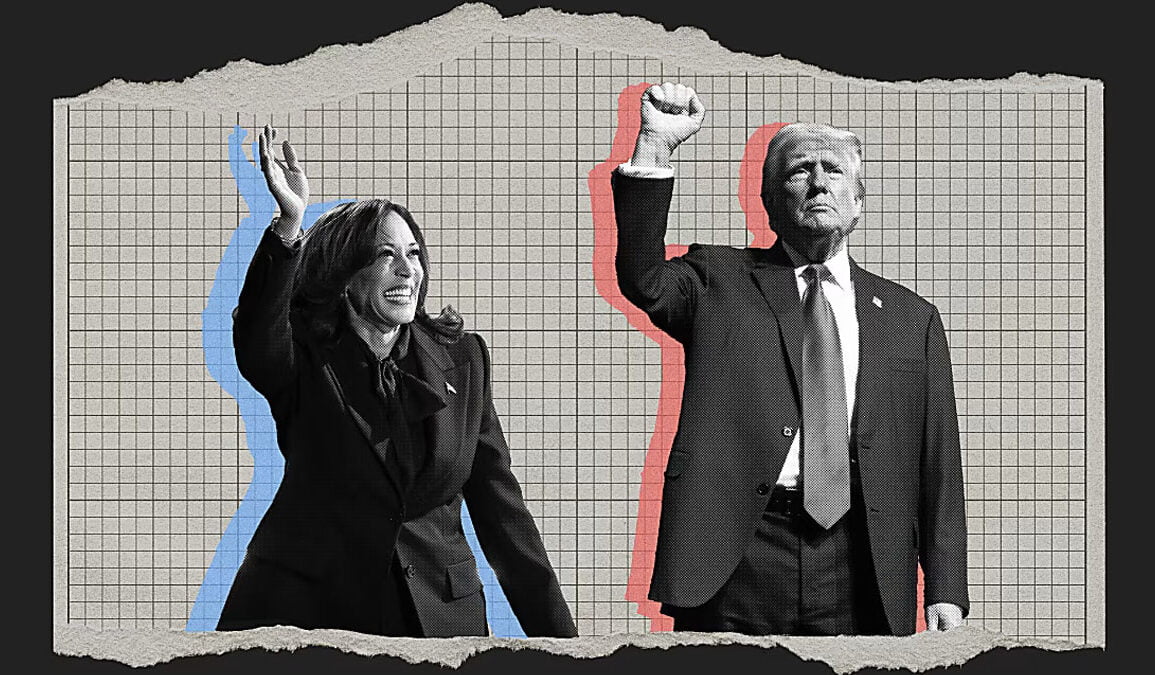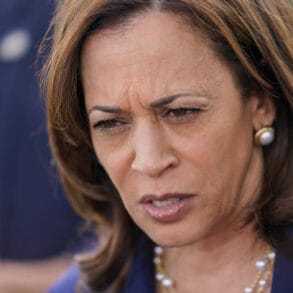There are several angles from which the recent Trump/Harris debate can be analyzed. The first is by examining the candidates’ individual performances. Another perspective is the role played by the moderators from ABC. Then, there’s the impact of post-debate media coverage, followed by the question of who “won” the debate. Lastly, we must consider how the debate may influence voters — and what it could mean for future polling and the election itself.
Individual Performance
From a performance standpoint, both candidates had specific goals going into the debate. For Vice President Harris, her primary objective was to win over the roughly one-third of voters who, according to polls, still feel they don’t know enough about her. However, her delivery fell flat. Harris largely stuck to the same well-rehearsed talking points she has repeated in previous speeches. She didn’t offer any fresh insights or specific plans that might appeal to undecided voters, instead relying on broad statements and generic promises.
Perhaps the most noticeable flaw in Harris’ performance was her frequent avoidance of direct questions. This became apparent from the opening moments of the debate when she dodged the question of whether Americans are better off today than they were four years ago, instead delivering what amounted to an opening statement. Later, when pressed on her previous policy flip-flops, she promised to address them — but never did.
Harris also attacked Trump on familiar topics, such as the ongoing court cases, Republican defections, the January 6th Capitol riots, and his relationships with foreign dictators. None of this was new, nor did she offer any fresh critiques. It felt like she was going through the motions, and even her pre-planned zingers seemed rehearsed and lacked spontaneity. While she is undoubtedly articulate and confident, her debate style was mechanical and left much to be desired in terms of real substance.
Trump, on the other hand, presented much the same image of himself that voters have come to expect. He wasn’t as polished or strategic as Harris, often jumping from one topic to another. His approach felt unscripted, almost improvised, compared to Harris’ rigidly prepared responses. Trump, while holding the winning positions on key issues like the economy, inflation, crime, and border security according to polling, failed to fully capitalize on these strengths. Aside from immigration, which he mentioned repeatedly, Trump missed opportunities to make strong, persuasive arguments on why he would be the best choice to tackle these issues.
While Harris might have appeared to some as putting Trump on the defensive, in reality, she often gave him a chance to correct misinformation. For example, when she inaccurately claimed that Trump opposed artificial fertilization, Trump took the opportunity to clarify that he strongly supports and has funded such initiatives.
That being said, Trump’s performance was not without its odd moments. His comments on the “dog-eating migrant issue” were fact-checked in real-time by the moderator, who claimed there was no evidence to support this. Additionally, Trump’s reference to Hungarian strongman Viktor Orbán, a controversial figure, left some scratching their heads, especially given the ongoing accusations that Trump is too cozy with authoritarian leaders.
Despite these missteps, Trump managed to land some effective blows, particularly when calling out Harris for her vague promises and lack of a concrete plan. He asked her why she and Biden hadn’t accomplished the things she was promising in the past three years. In terms of style, Trump succeeded in dispelling the narrative that he is in cognitive decline, as there were no noticeable “senior moments” during the debate.
The Moderators
The moderation, handled by Linsey Davis and David Muir of ABC News, was problematic and deserves criticism. I would grade the moderators’ performance an “F.”
Their approach seemed biased from the start. There was a discernible tone of disdain toward Trump, and this was reflected in the way they framed their questions. They frequently challenged Trump when they felt he hadn’t adequately answered a question but never applied the same pressure to Harris, even when she clearly dodged questions.
The moderators also engaged in selective fact-checking, choosing to call out Trump on certain issues while ignoring several of Harris’ inaccuracies. For instance, when Harris repeated the widely debunked “good people on both sides” quote regarding Trump’s response to Charlottesville, the moderators let it slide, even though fact-checkers from numerous outlets, including The Washington Post, have long since debunked that claim.
It’s worth noting that debate moderators are not supposed to become participants in the debate. Their role is to facilitate discussion, not fact-check in real-time, which inserts them directly into the debate and gives the impression that they are favoring one side. Unfortunately, this is exactly what the ABC moderators did. Their questions to Trump focused on more controversial topics, often designed to cast him in a negative light, while Harris was given softer, more favorable questions.
Post-Debate Media Coverage
As is often the case, the media’s post-debate spin played a significant role in shaping public perception. Unsurprisingly, left-leaning networks like MSNBC hailed Harris as the clear winner, while FOX News gave the victory to Trump, though they were not entirely uncritical of his performance.
CNN’s response was perhaps the most surprising. Immediately following the debate, Jake Tapper declared Harris the overwhelming winner and claimed Trump’s performance was a disaster. The entire panel concurred, and Chris Wallace went so far as to say that Trump’s debate was even worse than Biden’s infamous struggles during his debates — an extreme and, some might say, unreasonable conclusion.
By the morning, however, some objectivity returned to the analysis. While media outlets continued to show bias, it wasn’t as overt as it had been in the immediate aftermath. For Trump, this shift in tone worked in his favor, especially as FOX News and other outlets offered a more balanced view of the debate.
Determining the Winner
Ultimately, no clear knockout blow was delivered by either candidate. Trump edged ahead on issues of substance, particularly in areas like the economy and crime, where voters already view him as the stronger candidate. Harris, meanwhile, may have outperformed in terms of style, but the content of her answers was lacking.
Voter focus groups reflect this mixed result. In a Reuters focus group of ten independent voters, six said they were now leaning toward Trump, three favored Harris, and one remained undecided. This balance of opinions resembles the aftermath of the 1980 Reagan/Carter debate, where pundits gave the win to Carter, but voters sided with Reagan.
Impact on Voters
The true impact of this debate on the election is hard to predict. With early voting already underway, it’s unlikely that this debate will result in a significant shift in polling numbers. Most voters have already made up their minds, and the undecided segment is now a small fraction of the electorate.
That being said, any minor changes in the polls may still be significant in a race that is expected to be closely contested. In the days following the debate, pundits will be watching closely to see if Trump’s slight pre-debate momentum continues, stalls, or reverses.
In the end, the debate offered little in the way of game-changing moments. But for those still weighing their options, it provided enough contrast between the two candidates to reinforce their pre-existing views. And with the election looming, every moment of momentum could prove critical.
So, there you have it.








